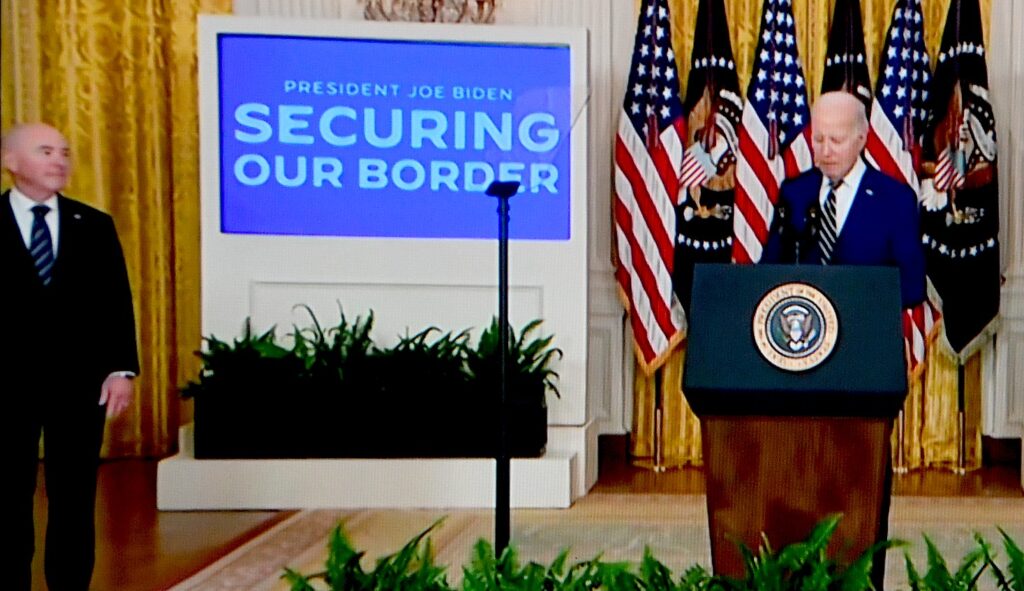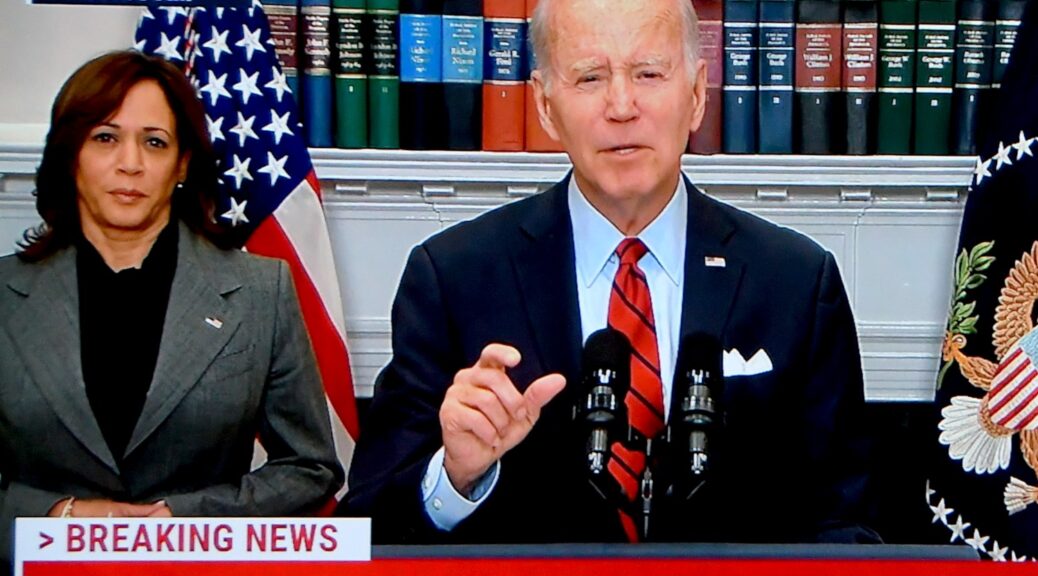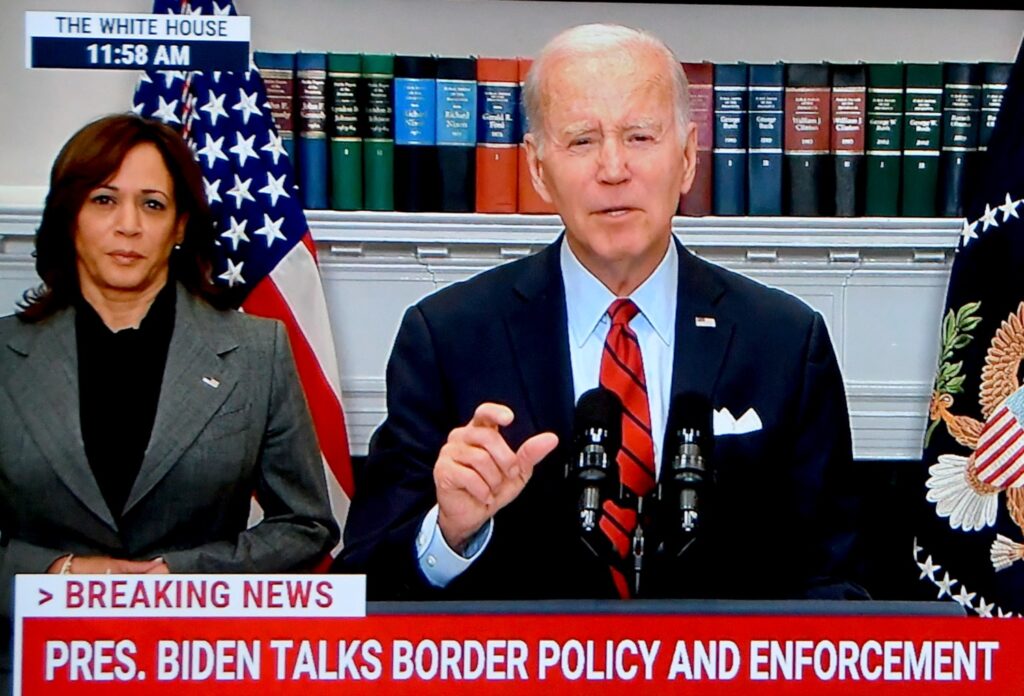President Biden has just issued a National Security Memorandum directing every federal Department and Agency to do even more to stop the flow of narcotics—including fentanyl—into our country, but in the end, it is up to Congress to act, which Republicans refuse to do because they want to use the border crisis and fentanyl issue to campaign on. Biden’s statement and a fact sheet of the new administration initiatives to beat back the opioid epidemic were provided by the White House:
“Our Administration’s efforts have helped lead to the first decline in overdose deaths in five years. We have seized more fentanyl at our border in the last two years than in the last five years combined, arrested and prosecuted dozens of high-level drug traffickers and cartel leaders, sanctioned over 300 entities and individuals involved in the global illicit drug trade, and forged historic counternarcotics cooperation with China. Still, far too many of our fellow Americans continue to lose loved ones to fentanyl. This is a time to act. And this is a time to stand together—for all those we have lost, and for all the lives we can still save.
“Today, I will issue a National Security Memorandum directing every federal Department and Agency to do even more to stop the flow of narcotics—including fentanyl—into our country.
“This Memorandum builds on my Unity Agenda, which made ending the opioid epidemic a top priority. It will enable our government to disrupt drug cartels—and their suppliers and financiers—more quickly and effectively. It will increase intelligence collection on traffickers’ evolving tactics to smuggle narcotics into our country. And it will help our law enforcement personnel seize more deadly drugs before they reach our communities. This Memorandum will also complement our historic work to expand access to treatment, including by making naloxone—the life-saving medication that reverses the effects of opioids—widely available over the counter for the first time.
“I’m calling on Congress to do their part—including passing the Biden-Harris Administration’s “Detect and Defeat” proposals. These bipartisan proposals increase penalties on drug smugglers, give border officials key tools they need to target fentanyl at our border, and close other loopholes that traffickers exploit. I also once again urge Congress to pass the bipartisan border security agreement which provides funding for more border agents and more drug detection machines. These are the key investments needed to stop fentanyl from reaching our communities.”
FACT SHEET: Biden-Harris Administration Announces New Actions to Counter the Scourge of Fentanyl and Other Synthetic Drugs
Far too many Americans have lost children, spouses, and friends to dangerous drugs like illicitly manufactured fentanyl. It is a scourge that has no geographic or political boundaries, wreaking havoc on families and communities in all parts of America. That’s why since day one, the Biden-Harris Administration has made disrupting the supply of illicit fentanyl and other synthetic drugs a core priority. As part of their Unity Agenda for the nation, President Biden and Vice President Harris have taken a number of actions to combat the opioid epidemic:
- Border officials have stopped more illicit fentanyl at ports of entry in the past two fiscal years than in the previous five fiscal years combined. In just the last five months, over 442 million potentially lethal doses of fentanyl were seized at U.S. borders. The Biden-Harris Administration continues to invest in detection technology at U.S. borders, adding dozens of new inspection systems, with dozens more coming online next year.
- The Biden-Harris Administration has made naloxone, a life-saving opioid overdose reversal medication, widely available over the counter, and has invested over $82 billion in treatment – 40 percent more than the previous Administration.
- In 2021, President Biden issued an Executive Order targeting foreign persons engaged in the global illicit drug trade and has since sanctioned over 300 persons and entities under this authority, thereby cutting them off from the United States’ financial system.
Due to these efforts, the number of overdose deaths in the United States has started to decline for the first time in five years. But even one death is one too many. And so today, President Biden will issue a new National Security Memorandum calling on all relevant Federal Departments and Agencies to do even more to stop the supply of illicit fentanyl and other synthetic opioids in our country. President Biden and Vice President Harris also are calling on Congress to enact legislation to increase penalties on those who bring deadly drugs into our communities and to close loopholes that drug traffickers exploit.
The National Security Memorandum
The National Security Memorandum (NSM) that the President will issue calls on all relevant Federal Departments and Agencies to do even more to stop the supply of illicit fentanyl other synthetic opioids into our country. As drug traffickers and suppliers adapt, we must do so as well. The NSM directs even more intelligence collection, even more intensive coordination and cooperation across Departments and Agencies, and even more actions to disrupt the production and distribution of illicit fentanyl. The NSM is one more step forward in the Biden-Harris Administration’s continued focus on dramatically reducing the supply of illicit drugs and their precursor chemicals, and protecting American lives.
Detect and Defeat Proposal
Today, the Biden-Harris Administration is also encouraging Congress to take action to combat illicit fentanyl, including by passing the Administration’s “Detect and Defeat” Counter-Fentanyl Proposal. This proposal incorporates many of the bipartisan ideas put forward by Members of Congress, and will increase the United States’ ability to detect and seize illicit drugs and hold drug traffickers accountable. The proposal would give border officials the tools they need to more effectively track and target the millions of small-dollar shipments that cross our borders every day—closing a loophole that drug traffickers exploit. It would establish a nation-wide pill press and tableting machine registry so that law enforcement officials can track these machines and protect against their illicit use in producing fake fentanyl pills. And it would permanently regulate fentanyl-related substances as “Schedule I” drugs—subjecting the distribution and possession of these drugs to heightened penalties.
Today’s actions build on a series of additional steps the Biden-Harris Administration has taken to combat the opioid epidemic, including:
- Since 2021, the Justice Department has arrested and prosecuted dozens of high-level Mexican cartel leaders, drug traffickers, and money launderers, including Sinaloa Cartel’s co-founder Ismael “El Mayo” Zambada Garcia, Chapitos leader Nestor Isidro “El Nini” Perez Salas, and Cartel de Jalisco Nueva Generación’s top chemical brokers—placing dangerous drug traffickers behind bars.
- In November 2023, President Biden negotiated the resumption of counternarcotics cooperation with the People’s Republic of China (PRC), spurring increased cooperation on law enforcement actions and ongoing efforts to shut down companies that fuel illicit fentanyl and synthetic drug trafficking and cause deaths in the United States.
- The Biden-Harris Administration has engaged with leaders around the world to spur global action in the fight against synthetic opioids, established a Trilateral Fentanyl Committee with the Governments of Mexico and Canada, and launched a Global Coalition to Address Synthetic Drug Threats uniting more than 150 countries in this effort.
- In 2024, the Biden-Harris Administration launched an information sharing partnership with financial institutions, law enforcement, and national security agencies as part of an ongoing effort to cut off drug traffickers’ access to the global financial system and disrupt the illicit financing of the drug trade.







